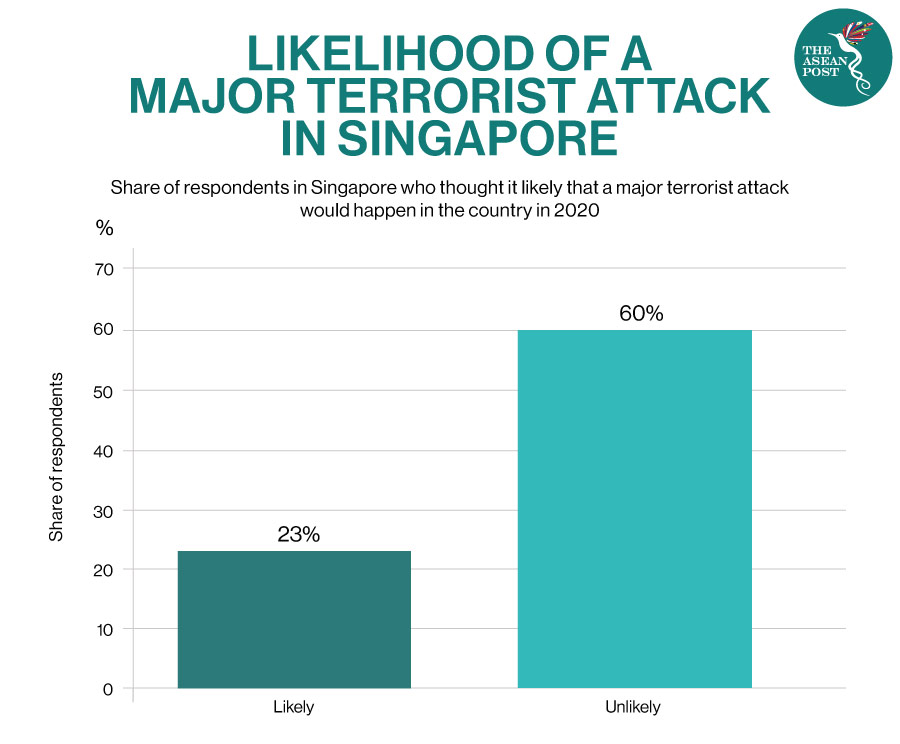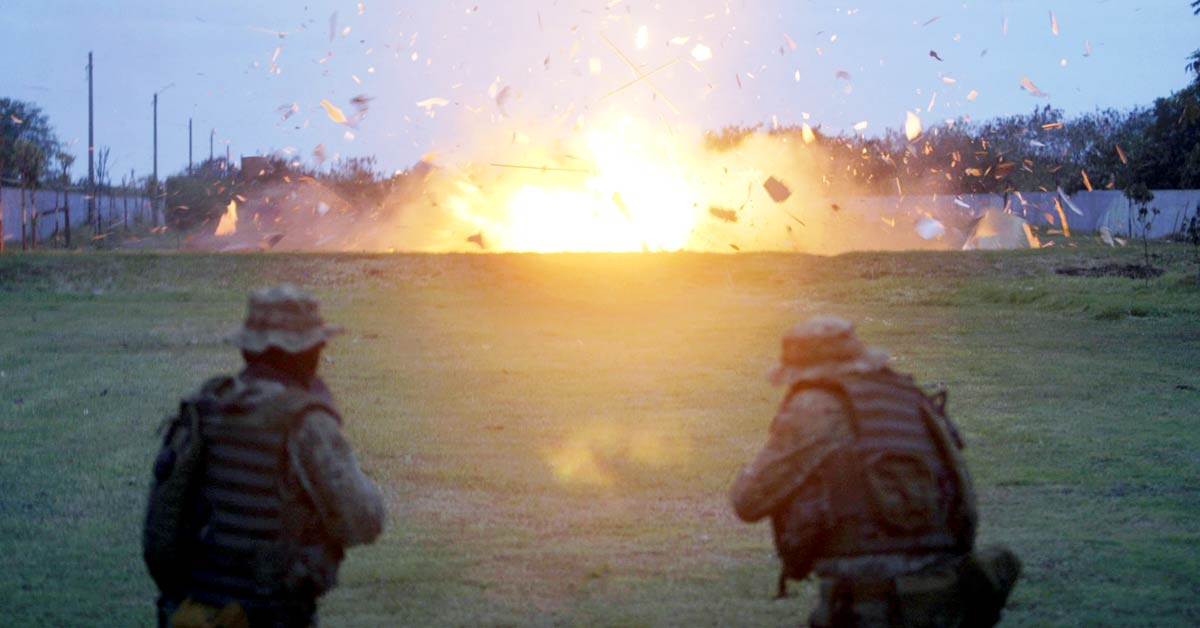The threat of terrorism continues to cast its shadow on Singapore. This situation may come as a surprise to those who expected COVID-19 restrictions to cause terrorism to decline.
Radicalised Terror
In December 2020, the city-state’s Internal Security Department (ISD) detained a 16-year-old Singaporean youth who plotted to use a machete to attack two mosques. The individual was the product of Christian far-right online radicalisation and planned his attacks to coincide with the second anniversary (15 March, 2021) of the Christchurch mosque shootings.
In March 2021, the ISD detained a 20-year-old Singaporean National Serviceman who plotted to use a knife to attack Jewish men outside a synagogue. The individual was the product of Islamist-nationalist online radicalisation and planned to join the Izz ad-Din al-Qassam Brigades, the military wing of Hamas in Gaza.
Globally, there is no commonly agreed definition of terrorism. The United Nations Security Council (UNSC) resolution 1566 (2004), however, refers to terrorism as “…criminal acts, including against civilians, committed with the intent to cause death or serious bodily injury … to provoke a state of terror in the general public or in a group of persons …”
In both recent Singaporean cases, the radicalised individuals' plots clearly meet the UNSC resolution’s terminology of terrorism. Firstly, both individuals were ideologically driven and planned to injure or kill civilians for politico-religious ends.
Secondly, they each targeted another group of persons – Muslims or Jews – who they believe pose an existential threat to their respective faith-based identities and communities.
Houses Of Worship
Essentially, both Singaporean cases are a stark reminder of the terrorist threat to houses of worship – comprising both the places and people of faith – in multicultural cities. In times of pandemic where movement restrictions and border closures impede transnational terrorism, homegrown lone-wolf terrorists would be a significant source of that threat.
After the media reported the two cases, Singapore’s religious leaders expressed their shock. There were public calls to improve the security at houses of worship.
However, the terrorist threat to houses of worship is not new in modern terrorism. In 1979, an Islamist group led by Juhayman al-Oteibi – a charismatic preacher and former member of the Saudi National Guard – seized the Grand Mosque of Mecca and took pilgrims as hostages in a revolt against the Saudi monarchy and modernity.
In 2018, a family linked to the Islamist group Jemaah Ansharut Daulah conducted suicide bombings on three churches in Indonesia. In 2019, the far-right terrorist Stephan Balliet attempted to attack a synagogue in Germany.
In targeting houses of worship, terrorists could achieve the tactical goal of vengeance for an actual or perceived injustice. More profoundly, terrorists could pursue the strategic aim of communicating an intimidating and forceful message to the group of persons they demonise as enemies.

‘Heartbeat’
Existing counter-terrorism strategies may have already included houses of worship among the likely soft targets requiring protection. For example, the Indian government in 2007 alerted police officials that terrorists could attack houses of worship to spark communal conflict.
Police in the United Kingdom (UK) in 2016 urged churches to improve security measures following attacks in France. Earlier in 2009, the UK National Counter Terrorism Security Office published a “Counter Terrorism Protective Security Advice for Places of Worship.” The UK replaced this guide in 2020 with the more current “Crowded Places Guidance.”
In 2017 Singapore organised a Counter-Terrorism Seminar to promote the SGSecure movement which included religious organisations in a national effort to prepare Singaporeans for terrorist attacks. Since then, more churches, mosques and temples have installed CCTV cameras. In 2019 the Singapore police conducted the counter-terrorism exercise “Heartbeat” at a mosque to test emergency preparedness and response plans.
Nonetheless, there may be a need to review these measures, as mentioned by Singapore’s Law and Home Affairs Minister. However, the occurrence of recent cases should not be the sole reason for conducting a review. Rather, the review should address the changing patterns of terrorism resulting from the next normal that COVID-19 creates.
On the attack side, homegrown lone-wolf terrorists could increasingly pose a threat as serious as terrorist networks. They could rely more on online means than offline means to conduct hostile reconnaissance and procure weapons. The decline in public trust in governments and institutions could discourage some people from sharing information with security agencies.
This decline could be due to frustrations over the prolonged COVID-19 pandemic and certain governments using counter-terrorism laws and tools to suppress dissent and control minority groups. Together, these factors could make terrorist plots more elusive.
On the defence side, houses of worship may need to calibrate their finite financial, human and other resources to serve both, pandemic control and counter-terrorism security measures. More of their workers and volunteers may need to expand their roles and knowledge to include recognising terrorist threats and handling emergency incidents.
The knock-on benefit is that enhanced security measures could also protect houses of worship from other crimes such as arson, burglary and theft. In streamlining processes, houses of worship should explore how they could adapt pandemic control methods and tools for access control, crowd control and social distancing to support counter-terrorism.
The Next Normal
The recent Singaporean cases demonstrate that terrorism is an enduring threat. COVID-19 has not reduced terrorism as a security priority. Rather, COVID-19 restrictions have given terrorists the time and space to re-assess their intentions and attack plans. Downtime during the pandemic also allowed terrorists to consume more online extremist propaganda and strengthen their resolve.
The social, economic and political issues worldwide that could fuel extremist propaganda and terrorist plots remain unabated during the pandemic. For example, segments in the Muslim world have expressed anger over vaccination inequality between Israel and the territories in Gaza and the West Bank. The Xinjiang issue, which the United States (US) is raising in its geopolitical squabble with China, could play into the hands of terrorists.
As multicultural cities ease pandemic restrictions due to vaccinations and fewer COVID-19 cases, public spaces could again become more vulnerable to terrorist plots. Therefore, security agencies should keep their intelligence-gathering and response capabilities sharp. Correspondingly, houses of worship should calibrate their security measures to better prepare for terrorism in the next normal. .
Related Articles:
Indonesian Terrorist Attacks Show Terrorism Is Still A Threat In Southeast Asia

